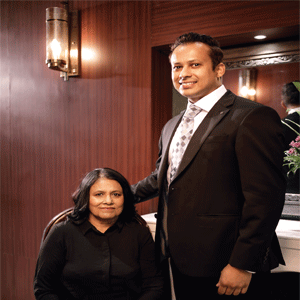 Magazine
Magazine

India is one of the largest producers of Jute fiber. However, with the rise of non-biodegradable and ecounfriendly plastics, the usage and market value of jute fiber has drastically declined owing to the affordability and versatility of the latter.
Biocrete Bags by JP Laminators & Corrugators are turning the tables around by being at the forefront of promoting and delivering products made of jute fiber. For over three decades, the mother-son entity, that is JP Laminators & Corrugators has been leading the race in manufacturing and exporting Laminated Jute and Paper Packaging products from India. The company has developed and supplied Biocrete Bags to several global sub-sea projects for over a decade. “Our objective is to develop and deliver affordable, biodegradable bags made out of jute fiber for underwater use and extreme conditions”, Srijit Aon, CEO of Biocrete Bags.
In most of the sub-sea projects, engineers often need to build temporary concrete structures in wet or watercourse conditions. The flowing stream does not allow enough time for cement mix to concretize, making such construction extremely difficult. Biocrete Bags addresses this challenge by offering cost-effective, efficient, and quick concretization solutions for hand placement of cement mix in similar conditions.
Most grout bags used for subsea and water stream applications are made of Polypropylene (PP) or Plastic, which makes it extremely
dangerous and harmful for the water ecosystem. Unlike grout bags, Biocrete Bags offers a unique combination of 100 percent biodegradable material, making it safe and sustainable for underwater use. Biocrete Bags are uniquely designed Biodegradable Cement Bagwork solutions, used by engineers for building temporary concrete structures in wet and watercourse conditions.
Made from an outer layer of burlap fibre, and an inner layer of recycled kraft paper, these bags are laminated using a proprietary biodegradable adhesive. Stitched using heavy-duty jute twine, manually double knotted at the end, strengthens the bag further to withstand extreme water pressure.
The unique aspect of Biocrete bags is that it is made of three-layer fiber. The three layer lamination controls the water from flooding inside the bag while holding the cement mix from washing away, giving it enough time to concretize. The manual stitch strengthens the bag further. It is stitched using heavy-duty jute twine, manually double knotted at the end, to withstand extreme pressure. Once the bags are filled to the required capacity, users can auto close it.
These bags are easy-to-use and require minimal manpower to fill them at the site. These bags have consistent shape and size and come with a maximum capacity of 25 kgs, ensuring ease of manual handling and eliminating any risk and hazards of handling.
Biocrete Bags are mainly used for quick concretization or disaster management applications. Srijit cites a case scenario on how he helped a client with his unique products. Sunderbans, the largest mangrove forest in the world, often faced soil erosion, landslides and flooding making roads extremely inaccessible and also causing damages to their embankments. To solve the issue, they sought help from Biocrete Bags. They used Biocrete Bags for their embankments and temporary village roads. With Biocrete Bags they were able to overcome natural disaster issues.
Our objective is to develop And deliver affordable, Biodegradable bags made out Of jute fiber for underwater Use and extreme conditions
Over the years, Biocrete Bags has witnessed enormous growth and appreciation from its customer base owing to the quality of the products. Having developed innovative biodegradable solution, the company is working on further enhancing the quality of its products. Not resting on its laurels, Biocrete Bags continues to research and develop useful and eco-friendly products and stays committed to adding more value for their customers. The company’s technologically advanced manufacturing facility with a floor space over 20,000 sq.ft. is located near Kolkata, India.
We use cookies to ensure you get the best experience on our website. Read more...